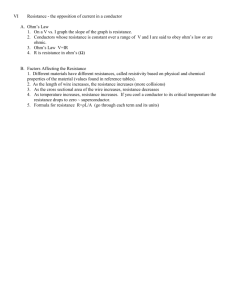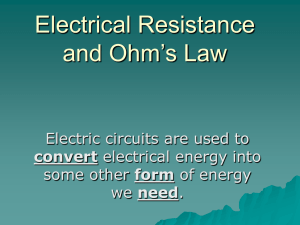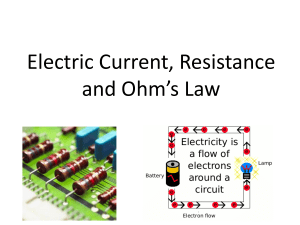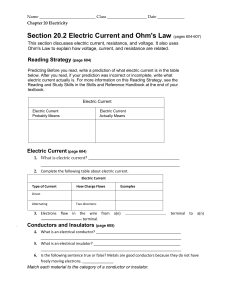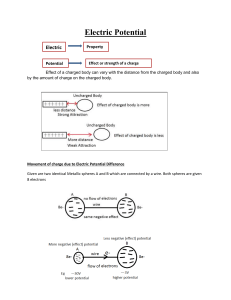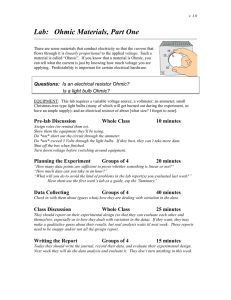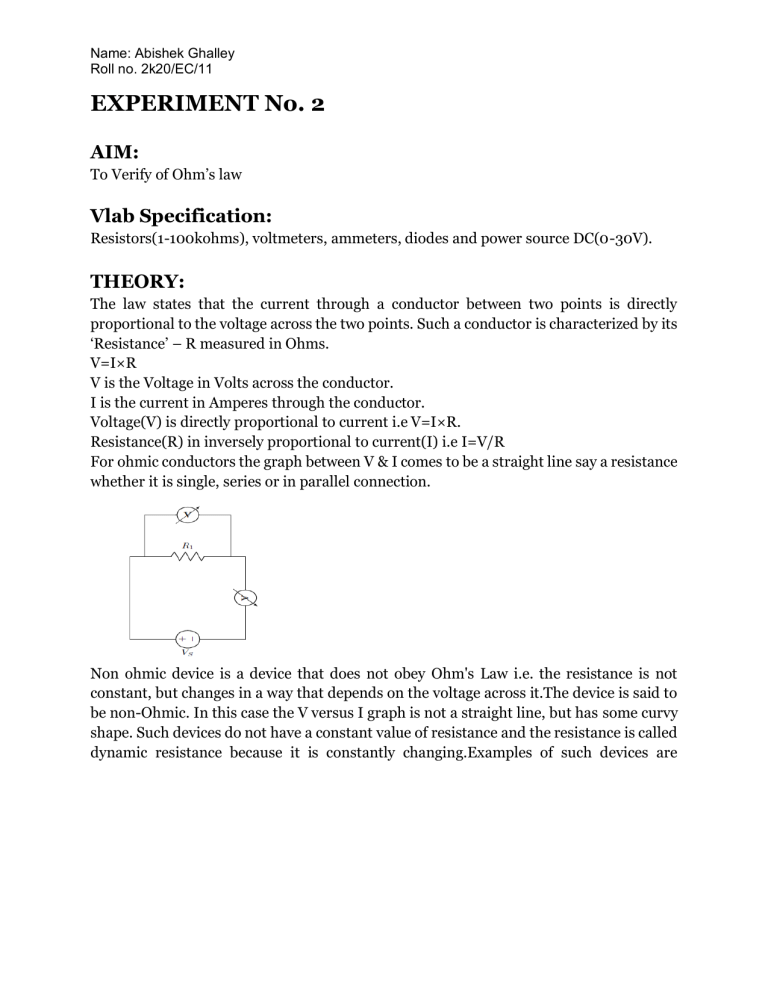
Name: Abishek Ghalley Roll no. 2k20/EC/11 EXPERIMENT No. 2 AIM: To Verify of Ohm’s law Vlab Specification: Resistors(1-100kohms), voltmeters, ammeters, diodes and power source DC(0-30V). THEORY: The law states that the current through a conductor between two points is directly proportional to the voltage across the two points. Such a conductor is characterized by its ‘Resistance’ – R measured in Ohms. V=I×R V is the Voltage in Volts across the conductor. I is the current in Amperes through the conductor. Voltage(V) is directly proportional to current i.e V=I×R. Resistance(R) in inversely proportional to current(I) i.e I=V/R For ohmic conductors the graph between V & I comes to be a straight line say a resistance whether it is single, series or in parallel connection. Non ohmic device is a device that does not obey Ohm's Law i.e. the resistance is not constant, but changes in a way that depends on the voltage across it.The device is said to be non-Ohmic. In this case the V versus I graph is not a straight line, but has some curvy shape. Such devices do not have a constant value of resistance and the resistance is called dynamic resistance because it is constantly changing.Examples of such devices are Name: Abishek Ghalley Roll no. 2k20/EC/11 tungsten filament OBSERVATIONS: (bulb), diode,thermistor etc. Name: Abishek Ghalley Roll no. 2k20/EC/11 Name: Abishek Ghalley Roll no. 2k20/EC/11 RESULTS: We have verified Ohm’s law for different cases: single resistance,series,parallel and non ohmic devices also analyze the corresponding graphs. PRECAUTIONS: ● All the electrical connections must be neat, tight and correct. ● Voltmeter and Ammeter must be of proper range and connected properly. ● The key should be inserted only while taking readings.
